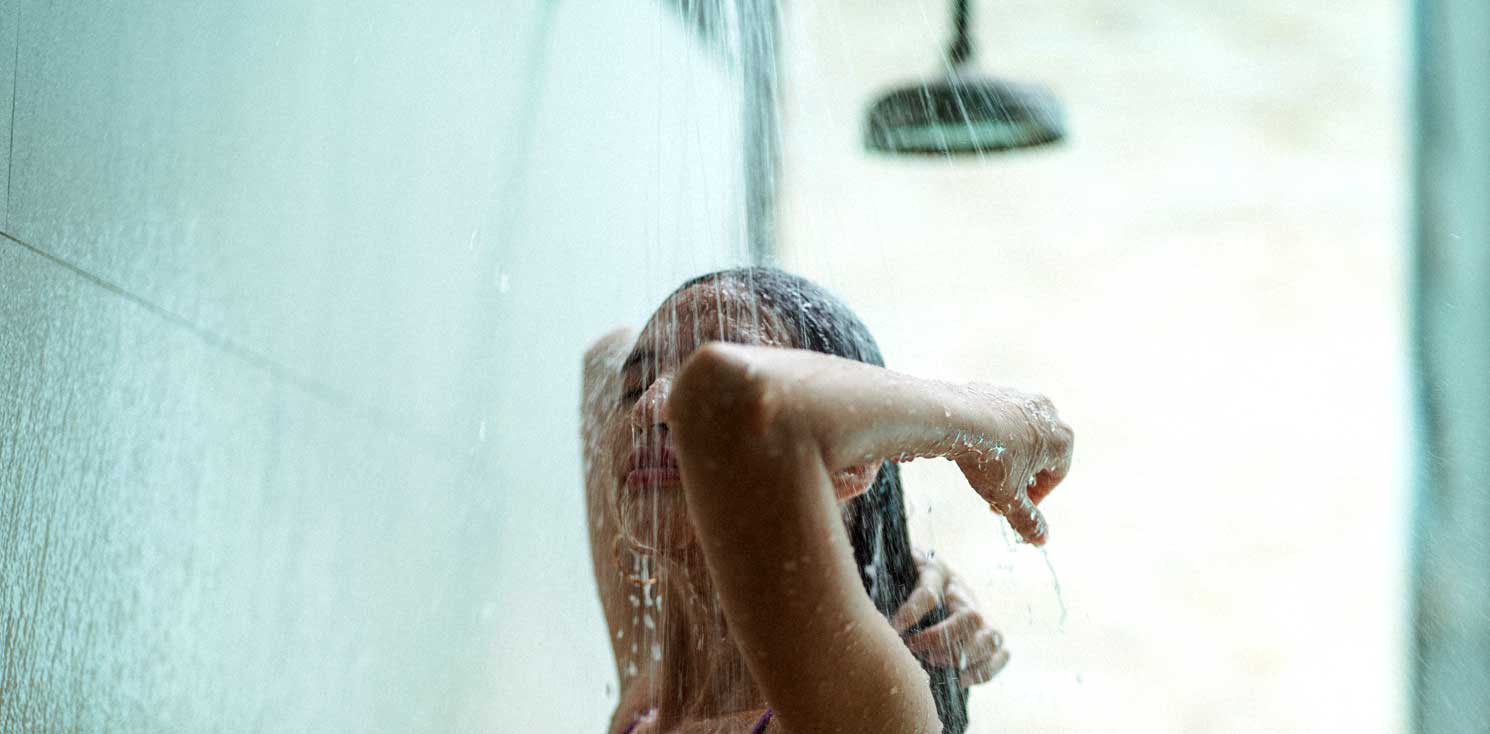Swimming is a refreshing and invigorating activity that offers swimmers lots of health benefits, both physically and mentally. Whether you're an avid swimmer or just enjoy an occasional leisurely dip, the experience of being in the water is truly rejuvenating. However, beyond the enjoyment lies a slight risk to your health and well-being. One crucial practice that often goes overlooked is taking a shower after using a swimming pool.
Reasons You Should Shower After Swimming In A Pool
This post will delve into the many reasons why a post-pool shower is not only a good idea but also an important step towards preventing illness after swimming in a pool or natural water.
Water Quality
Public pools are popular places, attracting people of all ages, either for fitness or fun. The sheer number of swimmers can lead to the accumulation of various contaminants in the pool water. Faecal matter, sweat, body oils, urine, and even natural oils from our skin contribute to the mix. While most pools are treated with chlorine-based disinfectants, the continuous presence of organic matter can create a chemical reaction that produces harmful by products. It’s always best to shower before you get into the pool, so you don’t add to the pool water, but it’s also essential that you shower off afterwards.
Risks
The risks associated with neglecting a post-swim shower can be mild but in the worst cases, can become very serious. The water in a swimming pool might appear clean, but it can harbour harmful bacteria, viruses, and other nasties. Recreational water illnesses can be a concern, and poor hygiene practices increase the risk of infection. For instance, the bacterium E. coli can find its way into pools through improper bathroom breaks or accidental contamination, leading to illness, bugs and other health issues.
Skin Irritation and Infections
Exposure to chlorinated water in pools can cause skin irritation, especially for those with sensitive skin. The combination of chlorinated water and body oils can strip the skin of its natural oils, leading to dryness and discomfort. Lingering chlorinated water on the skin's surface can cause allergic reactions and exacerbate existing skin conditions. By taking a quick shower after swimming, you can effectively rinse off these chemicals and minimise the risk of skin problems.
Protection Against Recreational Water Illnesses
A post-pool shower serves as a protective barrier against recreational water illnesses. As you swim, harmful pathogens can adhere to your skin. Taking a shower with warm water and mild soap helps to remove these pathogens, reducing the likelihood of infection. Moreover, even if you inadvertently swallow some pool water, a pre-swim shower can help remove bacteria from areas like the face and hands, minimising the risk of ingesting harmful microorganisms.
Ear Infections
A good reason to have a post-swim shower is that it can help prevent ear infections. Moisture trapped in the ear after swimming can create a conducive environment for bacterial growth, leading to painful ear infections known as swimmer's ear. By thoroughly rinsing off after swimming, you can help to prevent moisture-related infections.
Respiratory Issues
The health concerns related to swimming pool hygiene aren't limited to the skin. Chlorine and other pool chemicals can evaporate into the air around the pool, potentially affecting the respiratory system. Those with pre-existing respiratory conditions are particularly vulnerable. Showering after swimming helps wash away any lingering pool chemicals from the skin and hair, reducing the risk of inhaling them and minimising the risk of respiratory issues.
Cuts and Grazes
If you have any cuts or scrapes on your body, they can become a pathway for harmful bacteria to enter your system. Even in a chlorinated pool, there's a possibility of bacteria finding their way into open cuts. By taking a shower after swimming, you can wash away any potential contaminants and reduce the risk of infections in these vulnerable areas.
Natural Water vs. Pool Water
The need for post-swim showers isn't limited to pool water alone. Natural bodies of water, like lakes and rivers, also require caution. While these sources might seem pristine, they can contain various contaminants. Bacteria, parasites, and pollutants from industrial waste can pose health risks. Hence, taking a thorough shower after swimming in natural water is equally important to minimise potential health issues.
Post Swim Top Tips

Swimming in a public pool is a wonderful way to stay active, but it's important to remember that chlorine and other pool chemicals can take a toll on your skin and hair. Proper post-swim showering and hair care are essential to maintain your health and ensure that you can enjoy the pool without worrying about any negative effects.
Here is our guide on the best way to shower and clean your hair after taking a refreshing plunge in a public pool.
Rinse Off ASAP
The moment you step out of the pool, head straight to the showers. Rinsing off with lukewarm water helps remove the majority of chlorine, salt, and pool chemicals from your skin and hair before they have a chance to settle in.
Start with Your Hair
Begin by wetting your hair thoroughly. Use clean water to saturate your hair from root to tip. This initial rinse helps to remove the bulk of pool water, which can be laden with chlorine and other chemicals.
Shampoo
Choose a clarifying or swimmer's shampoo that's specifically designed to remove chlorine and other pool residues. Gently massage the shampoo into your scalp, working your way from the roots to the ends of your hair. Rinse thoroughly.
Condition
After shampooing, apply a hydrating conditioner to your hair to replenish moisture lost due to the chlorinated water. Focus on the lengths and ends of your hair, avoiding your scalp to prevent greasiness.
Body Wash
While your conditioner is doing its magic, use a mild, moisturising body wash to cleanse your skin. Pay attention to areas that were exposed to pool water, and don't forget to give your swimsuit a quick rinse as well.
Rinse Your Hair
After letting the conditioner sit for a few minutes, rinse your hair thoroughly with cool or lukewarm water. This final rinse closes the hair cuticles and seals in moisture.
Pat Dry
Once you're done with your shower, gently pat your skin with a clean, soft towel. Avoid rubbing vigorously, as this can irritate, especially on freshly cleansed skin.
Hair Care
After stepping out of the shower, gently wring out excess water from your hair. Apply a leave-in conditioner or hair serum to protect your hair. If you swim regularly, consider wearing a swim cap. While it might not keep your hair completely dry, it can significantly reduce exposure to chlorine and chemicals.
Shower at Home
If possible, shower again at home after your pool session. This extra rinse helps ensure that any lingering pool chemicals are completely removed.
Stay Hydrated
Drink plenty of water after swimming to help your body flush out any residual pool chemicals and maintain overall hydration. Hydration will also help reduce muscle cramps.
In essence, a post-swim shower is not just a good idea; it's an essential practice for maintaining your health and well-being after enjoying recreational water activities. Whether you prefer the chlorinated waters of a pool or the natural embrace of a freshwater lake, taking a few minutes to rinse off can make a significant difference.
From removing harmful bacteria and pool chemicals to preventing skin irritation and infections, the benefits of a quick shower far outweigh the inconvenience. So, the next time you take a dip, remember that a post-swim shower is your first line of defence against potential health problems. Your body will thank you for it.


